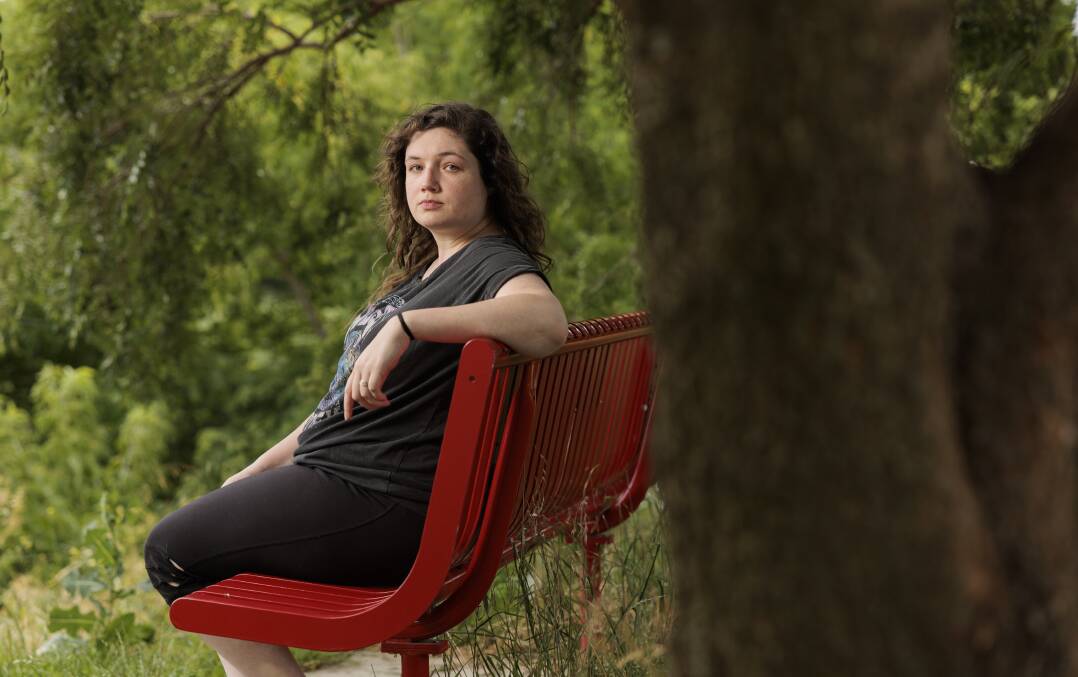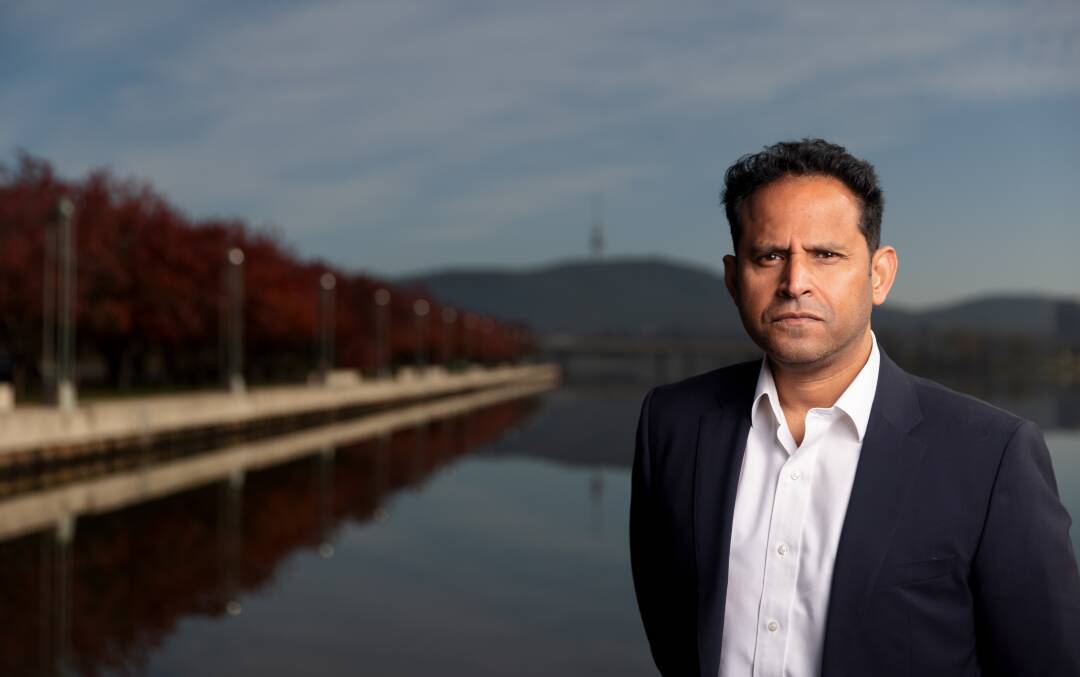
Canberra has the lowest bulk-billing rate of the Australian capitals, new data revealing the rate is nearly 40 per cent below the national average.
Doctors say more support is needed for general practitioners and have warned people's health will deteriorate as access to care is delayed.
This is a situation Ayla Weeks knows all too well. The Queanbeyan resident has ended up in hospital with a kidney infection as she struggled to afford the mounting costs.
In mid-2020, Ms Weeks managed to do what few in the region have been able to. She found a bulk-billing GP in Canberra, however, her joy would soon turn to disappointment.
"He was male, so maybe it was because they were female issues, but he told me to drop it and go see somebody else. So I was a bit upset because he was a bulk-billing doctor and I didn't have many options," she said.
EDITORIAL: Local solutions needed for Canberra's health system woes
Ms Weeks suffers from recurring urinary tract infections.
"Because of that, I tried to find different doctors, and through that process realised that bulk-billing was disappearing," she said.
Ms Weeks said the costs of private consultations would add up. It followed the same long process of having a consult, going back for results, getting more tests and then more results. Out-of-pocket costs were about $60 per visit, after a rebate from having a health card.
"At the end of the day, I've stopped going and I just haven't followed up with a lot of my health issues, because it just cost too much," she said.
Canberrans pay more for doctor visits
The head of the Australian Medical Association's ACT branch has called for reforms to bulk-billing and said the nation's capital had been left behind in general practitioner numbers and financial incentives.
Professor Walter Abhayaratna said general practitioners should not be demonised for trying to be financially viable, especially after the territory's clinics were cut off from extra financial incentives.
He said the territory was also contending with a far lower rate of general practitioners than urban areas. He said there were about 100 doctors for every 100,000 people in the ACT but in other metropolitan cities it was about 120.
"We're more like the regional and rural areas than we are the metropolitan urban areas," Prof Abhayaratna said.
Canberra and Queanbeyan were cut off from federal government rural incentives three years ago, which gave extra payments to clinics that bulk-billed pensioners, children and other concession patients.
Prof Abhayaratna said this meant general practitioners were forced to provide a service with a gap due to the lack of support.
The ACT's bulk-billing rate of 5 per cent is far lower than the national average of 42.7 per cent and Sydney's 67.3 per cent - the highest bulk-billing rate of the capital cities.
The analysis, conducted by Cleanbill, a healthcare comparison online directory, also found Canberrans paid the highest out-of-pocket costs in the country with the average visit to a doctor costing $49. The national average is $40.25 for clinics that don't bulk bill.
There are 100 general practitioners in the ACT and Queanbeyan. Only five bulk bill all patients.
Cleanbill contacted every general practitioner clinic in the capital cities and all clinics in the Northern Territory and Tasmania between August to December as part of its analysis, with details of the more than 4000 clinics provided on its website.
Users are able to search for clinics and apply filters around costs and other needs.
"While there are averages in each of the areas surveyed, it is possible for people to search for a practitioner in your area to meet your affordability and accessibility criteria," Cleanbill founder James Gillespie said.
Reforms needed
Prof Abhayaratna said the health system was not sustainable and urgent reforms were needed. He said Medicare needed to support more integrated care across the health system, adding there needed to be changes to give general practitioners higher rebates for longer and more complex appointments.
"We are now an ageing population so increasingly there is a population that has chronic and complex medical conditions that requires GPs to be across that and the GPs to have a support team, which is made up of allied health nursing staff in the primary care, but also non-GP specialist support," he said.

"It is so hard to connect all of those. It's such a dynamic problem that we've now entered into. It requires reforms in the way in which we connect."
Professor Abhayaratna said this was evident in data showing there was an increase in people presenting to emergency departments who had been deteriorating in the community for weeks, even months, with a chronic condition that had yet to be diagnosed.
"It may be a chronic condition that's yet undiagnosed and it's difficult for the GP to get that patient the tests that are required because it requires integration with specialist care and GP specialist care," he said.
The Royal Australian College of General Practitioners deputy chair of the NSW and ACT faculty council Michael Wright said the Medicare rebate had changed very little over the last decade and this had not kept up with the costs of providing care.
He said bulk-billing rates had dropped around the country because general practitioners were struggling to make ends meet.
"I'm really worried about the road that we're going down. Without more support for GPs to bulk bill, more patients are going to struggle to find a GP who does bulk bill, other patients are going to struggle to find a GP at all," Dr Wright said.
"And that's going to result in patients delaying care, health conditions deteriorating and that's going to put extra pressure elsewhere on the system.
"We do urgently need additional funding to support GPs to provide primary care services. It's only with additional funding to make general practice an attractive career that will encourage more people to go into general practice."

Ms Weeks' health is deteriorating as she waits to see a gynaecologist through the public system. She continues to get regular urinary tract infections.
"Sometimes it's nothing and sometimes it can be bad. And I usually go in and get antibiotics," she said.
"I was a bit short on cash, and I thought I'd try and handle it on my own at home.
"There are things online, home remedies or tips for treating yourself. And that might be a stupid thing to do, but I gave it a go and it didn't work out."
She ended up in Queanbeyan Hospital, being "pumped full of antibiotics".
Ms Weeks said she has waited eight months already to see a specialist. An appointment in December had to be postponed because she was unable to afford it.
Because of her health problems she cannot work in an office, but recently took on a job working from home four days a week.
Urinary tract infections left untreated by antibiotics can cause kidney damage.
So as she continues searching for a bulk-billing GP, Ms Weeks is forced to play Russian roulette with her health.
We've made it a whole lot easier for you to have your say. Our new comment platform requires only one log-in to access articles and to join the discussion on The Canberra Times website. Find out how to register so you can enjoy civil, friendly and engaging discussions. See our moderation policy here.







